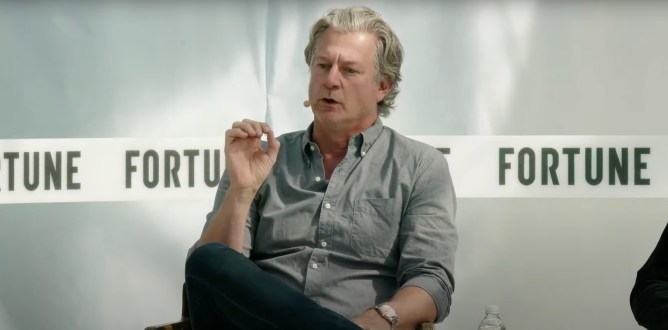The CEO of the largest digital and print publisher in the U.S. has accused Google of being a bad actor for crawling its websites to support the search giant’s AI products. Neil Vogel, CEO of People, Inc. (formerly Dotdash Meredith), said that Google is not playing fair. His company operates over 40 brands, including People, Food & Wine, Travel & Leisure, Better Homes & Gardens, Real Simple, Southern Living, and AllRecipes.
Vogel stated that Google uses the same bot to crawl websites for its search engine index as it does for its AI features. This means the same crawler that sends traffic for search also collects content for AI products, which Vogel characterizes as theft. He made these comments while speaking at the Fortune Brainstorm Tech conference this week.
He provided context on the significant decline in traffic his company receives from Google. Three years ago, Google Search accounted for about 65% of the company’s traffic, a figure that has since dropped to the high 20s. In a previous statement, Vogel shared that several years ago, Google’s traffic accounted for as much as 90% of People Inc.’s traffic from the open web.
Vogel clarified that he is not complaining about his company’s performance, noting they have grown their audience and revenue. His central argument is that it is not right for a company to take their content to compete with them directly. He believes publishers need more leverage in the AI era and feels it is necessary to block AI crawlers to force content deals. His company, for example, has a deal with OpenAI, which he described as a good actor.
People, Inc. has been using a solution from web infrastructure company Cloudflare to block AI crawlers that do not pay. This action has prompted large language model providers to approach the publisher with potential content deals. While no deals have been signed yet, Vogel said the company is much further along in negotiations than it was before adopting the crawler-blocking solution.
However, Vogel pointed out a critical problem: Google’s crawler cannot be blocked. Blocking it would also prevent the publisher’s websites from being indexed in Google Search, which would cut off the approximately 20% of traffic that still comes from Google. Vogel declared that Google is aware of this dynamic and is choosing not to split its crawler, making it an intentional bad actor in his view.
Janice Min, the editor-in-chief and CEO at newsletter provider Ankler Media, agreed with this assessment. She called big tech companies like Google and Meta longtime content kleptomaniacs. She stated that she does not see a current benefit to partnering with any AI company and that her company also blocks AI crawlers.
Meanwhile, Cloudflare CEO Matthew Prince, whose company provides the AI-blocking solution, offered a different perspective. He believed that the behavior of AI companies will change in the future, likely prompted by new regulations. He also questioned whether using existing copyright law to fight AI companies is the right approach. Prince suggested it is a fool’s errand because copyright law often protects derivative works under fair use, and AI companies are creating derivatives. He referenced Anthropic’s recent settlement with book publishers for $1.5 billion as an example of a company seeking to preserve a positive copyright ruling.
Prince also proclaimed that everything wrong with the world today is, at some level, Google’s fault. He argued that Google taught publishers to value traffic over original content creation, which led publishers like BuzzFeed to write for clicks. Despite this, he admitted that Google is in a tough competitive position. Prince predicted that by this time next year, Google will be paying content creators for crawling their content and using it in AI models.

